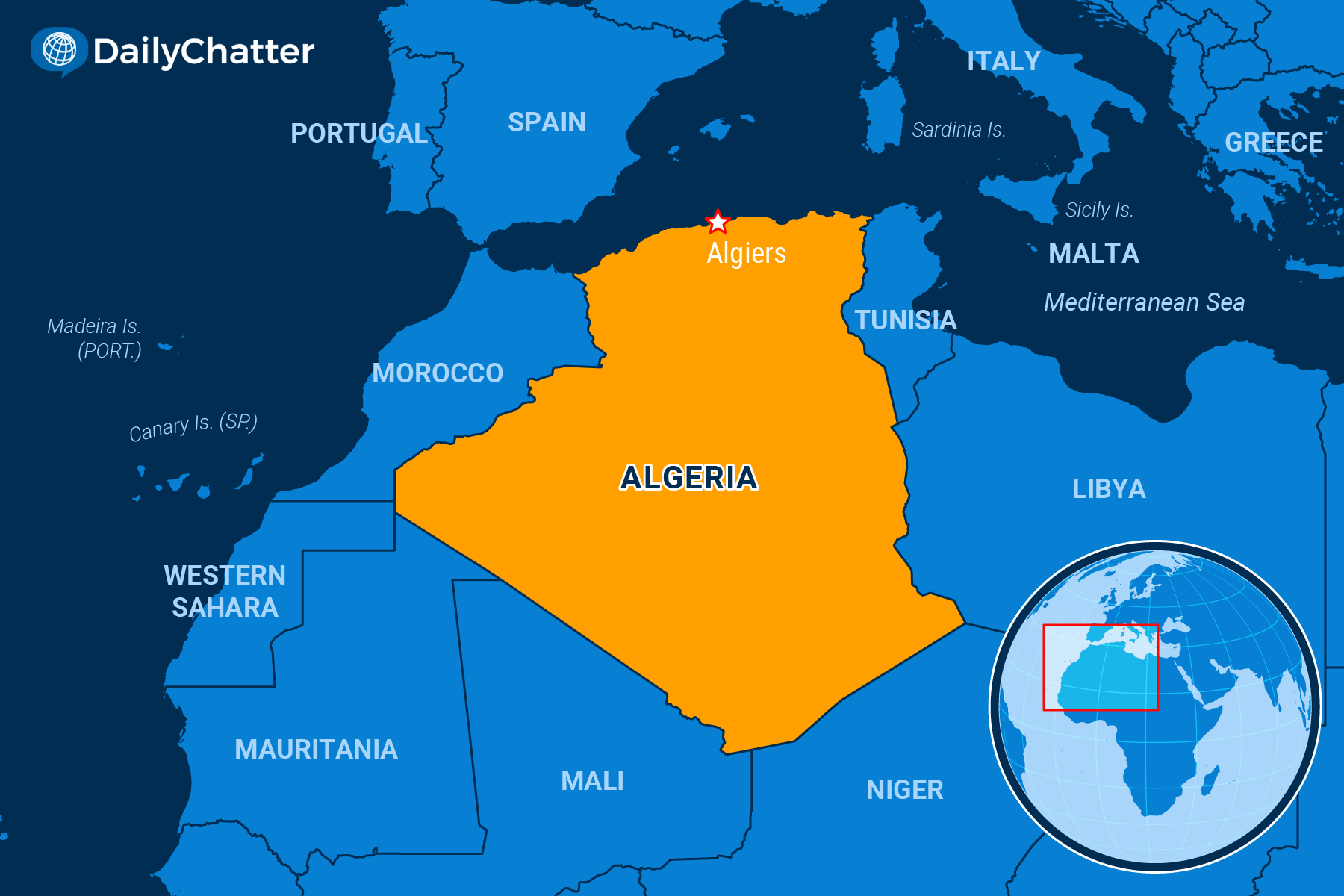Need to Know
October 26, 2022Turning to the World
Algeria

|
Listen to Today's Edition
|
Algeria’s authoritarian rulers have a mixed relationship with globalization.
After winning independence from France in a bloody war that ran from the mid-1950s to the early 1960s, Algeria championed decolonization and the Non-Aligned Movement during the Cold War. After a civil war in the 1990s that erupted after the military prevented Islamists from assuming power at the ballot box, however, the North African country become more isolated.
“A country turned away from the world, cloaked in an opacity so dense as to be numbing,” wrote New York Times columnist Roger Cohen, describing Algeria. “It has long sealed its border with Morocco, and only recently reopened crossings into Tunisia after more than two years. It keeps trade with neighbors to a minimum, and its political powers veiled.”
Protests over corruption and economic inequality forced ex-President Abdelaziz Bouteflika to resign in 2019. In the aftermath of that political earthquake, Algerian President Abdelmadjid Tebboune cracked down on political dissent, free speech and the press, according to Human Rights Watch.
But the country is changing in spite of itself.
As the Atlantic Council wrote in a blog, Algerian leaders have held a series of high-profile meetings with foreign dignitaries. Tebboune has visited many foreign capitals. And Algerian diplomats have made important moves to grapple with issues in their region. New economic deals with France exemplify the new openness, as France24 explained.
Energy is at the center of this shift.
Algeria is ramping up oil and natural gas production as European demand and prices skyrocket due to Russia’s invasion of Ukraine. The windfall has allowed officials to plow money into the military, Bloomberg reported, but also into the social welfare safety net. The government has raised food subsidies, canceled planned tax increases and bolstered its rainy-day funds.
The money is also allowing officials to invest in diversifying the massive country’s economy – Algeria is the world’s tenth-largest nation by surface area – through new gold, zinc, copper and other mines, Euronews added. That likely means new towns opening in the Sahara Desert as the mines start producing.
These changes are having geopolitical repercussions in North Africa. Tunisia, for example, acknowledged Algeria’s newfound prominence recently by inviting the leader of the Polisario Front to an investor conference, Foreign Policy magazine explained. The Front has long sought independence for the Western Sahara region from Morocco – with Algerian support. Morocco has claimed that region as its territory.
Algeria has also brokered talks between different factions of Palestinians in order to help bring a resolution to their disputes with Israel, added Al Jazeera.
Observers are sounding words of caution, however.
Writing in Middle East Eye, Dalia Ghanem, a European Union Institute for Security Studies analyst, noted that Tebboune is not using his country’s newfound wealth to make systemic changes. She predicted more “societal unrest” as a result.
Until then, the Algerian regime will drill and spend.
Not already a subscriber?
If you would like to receive DailyChatter directly to your inbox each morning, subscribe below with a free two-week trial.
Support journalism that’s independent, non-partisan, and fair.
If you are a student or faculty with a valid school email, you can sign up for a FREE student subscription or faculty subscription.
Questions? Write to us at hello@dailychatter.com.

